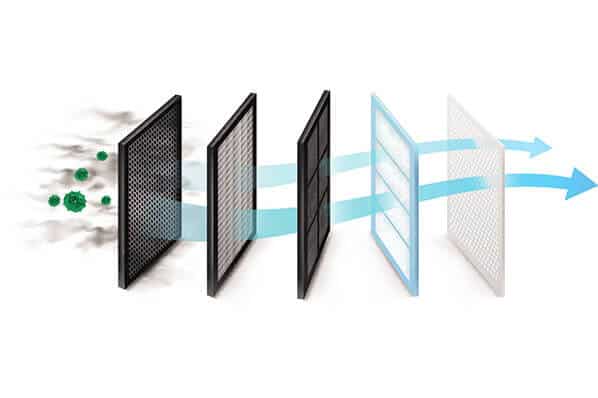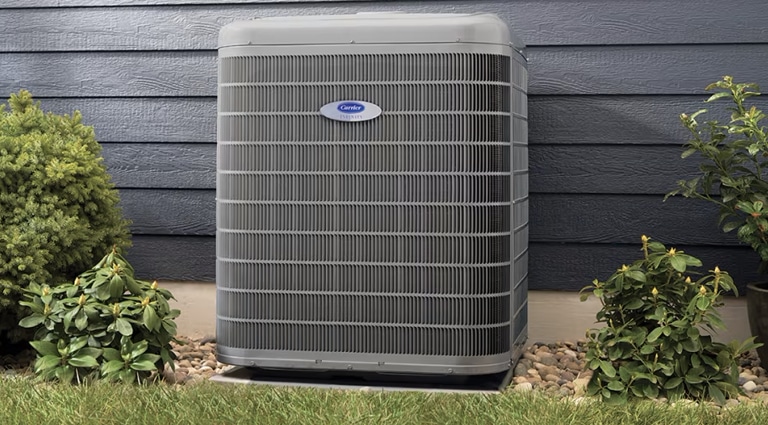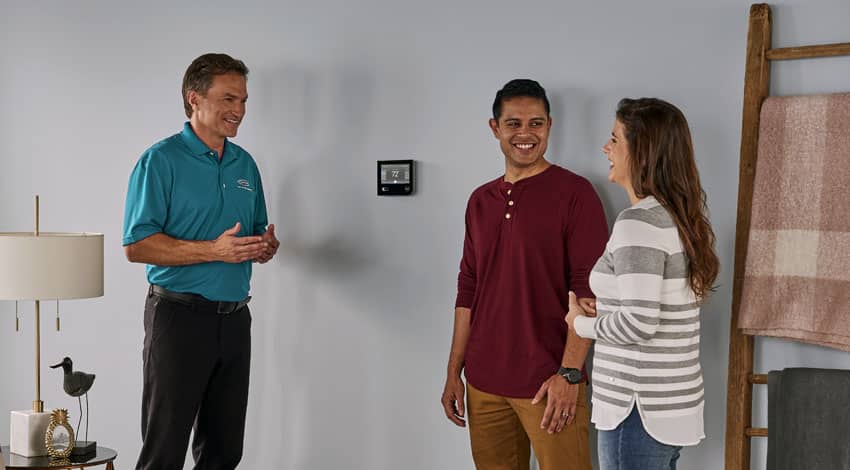You might think that your home air filter only exists for your protection. However, the filter actually protects you and your unit.
You might also be thinking you are changing your filters frequently enough, but you could be wrong.
Below we will explain the different types of air filters and how often these should be changed.
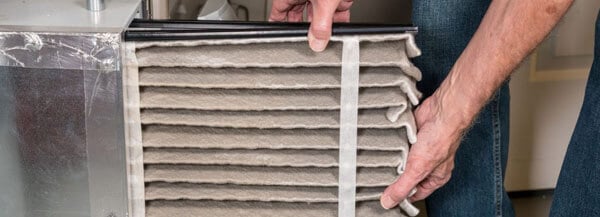
How often should you replace your filters?
Ideally, you should replace your air filters every 30 to 60 days. While some of the more expensive filters might advertise that you can use them for a maximum of three months, these filters could be burdensome on your system.
The exception to this is media filters. If you are using a media filter that is 5 inches, the filter is suitable for at least 6 months and up to one year. Of course, this depends on your lifestyle and the air inside your home, especially if you have children or pets.
It is essential to swap your air filters more often if there are several people and/or pets in your household.

Air Filter Types for Your Home
While you most likely know the filter size that your unit requires, you might not be aware of the best type of air filter for your household’s needs.
Your home needs an air filter that eliminates dust while allowing airflow at the same time. These filters provide protection to your heater by preventing dust from reaching the critical components. Dust buildup can cover the evaporator coil, which results in temperature boosts in your furnace as well as air conditioning overload.
Dust is also the main culprit in overwhelming your blower. This causes the blower’s motor to heat up, resulting in damage.
Your furnace processes the air around your household at a rate of seven times per hour in the average home. With this in consideration, it is no surprise that dust can interfere with your unit.
Dust is bad news. It subjects your unit to more arduous work to move air around your home. When this happens continuously, it burns out your unit too quickly.
When you go to a store, you’ll realize that there are voluminous amounts of options for air filters. You might also think that once you’ve seen one air filter, you’ve pretty much seen them all. This is
Not the case.
Every filter on the market is different. Determining which filter is the most suitable for your household’s needs can be cumbersome. You do not have to feel overwhelmed by these options though because we are here to help you find the best air filter for your needs!
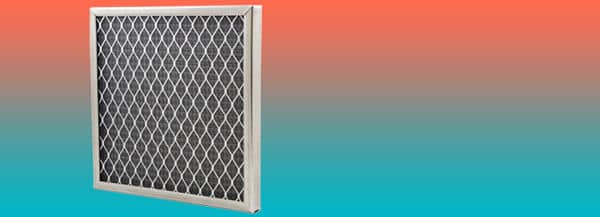
Washable Filters
Having an air filter that is washable seems like an excellent idea. Unfortunately, a lot of people do not detach and clean out their filters as often as they really should.
While you may be washing it regularly, it is still hard to get your filter adequately cleaned. Most of the time, debris still get left behind in the filter’s fibers. This will cause your washable filters to become less efficient and collapse over time.
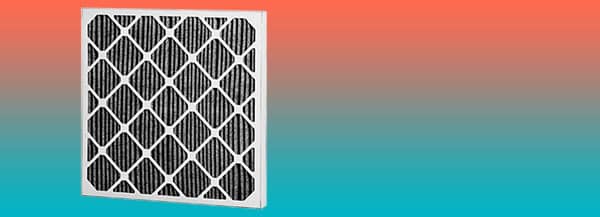
Carbon Filters
Over the years, you probably have seen the use of carbon in water to sift out odor and taste. Now, air filters have adopted the use of this method, and more and more people are using specialized air filters with a carbon
You might be thinking that this type of air filter is not something you’d prefer the air you breathe to flow through. Why? Because a fresh filter is usually white. When it becomes dirty, it begins to appear dark and grey. These carbon-coated filters are black on the get-go. Although they may not be visually appealing, these filters can certainly get the job done.
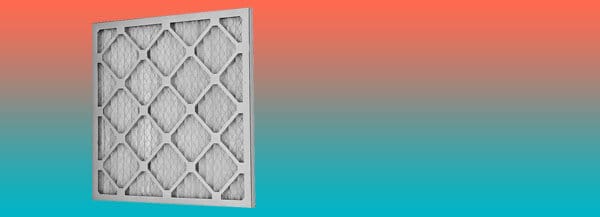
Tightly Pleated Filters
When you shop for an air filter, you’ll notice that these filters are rated. This rating is called the Minimum Efficiency Reporting Value, or MERV. This pertains to how close the pleats are positioned on a particular screen. In other words, the higher the MERV score, the more close-fitted the pleats are situated.
So, you’re probably thinking, “The best filter for my home is the one with a higher MERV rating.” That is not always the case. If you get a filter with pleats that are too thick, your filter could get dirty quickly. Thus, making your AC unit work harder than it needs to.
A good benchmark to follow when considering MERV ratings is that if it’s more than 13, the pleats are most likely too thick for your filter. While these are excellent in shielding your unit against dust, they can result in overheating.
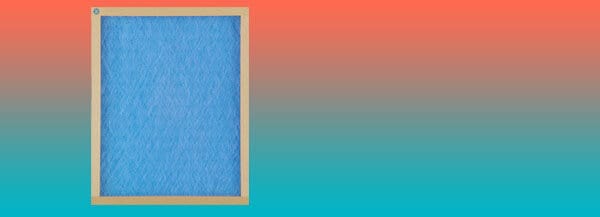
Fiberglass Mesh Filters
Simply put, these air filters are too thin—just like the patience of a grandma trying to learn how to use a mobile phone.
These air filters are effortless to identify. You will be able to see your hand through the other side when passing your hand behind it.
You might think that this is an excellent choice because they allow air to flow effortlessly. However, these air filters are not so good when it comes to catching debris and dust. Therefore, they don’t give your unit protection.
How Do You Choose?
Now that you’ve read through the differences of each type of air filter, deciding which one is best doesn’t seem like an easy task, does it?
Ideally, the best choice for your unit is a pleated filter. However, you have to choose ones that don’t have their pleats situated too tightly. Check out the MERV rating of a particular screen. Keep in mind that a score above 13 is too high. On the contrary, a six rating is just too low. So, an air filter with a MERV rating of 8, would be just right.
Things You Should Never Do
To take care of your air filter and keep your unit in tip-top shape, you have to stop doing these standard practices:
1. Blocking Your Vent With Furniture
While we’re all aware that vents might not always look good in a room, placing furniture such as bookshelves, couches, and other items in your vent’s way is totally unrecommended. This practice will curb the flow of air in your unit.
However, if you’re in a situation where you want to place furniture by the vent, it is recommended to leave a couple of inches between your furniture and the vent.
2. Setting Up a Pre-Filter
Instead of the vent, some homes have a filter installed at the furnace. In which case, an extra screen within the vent or grill isn’t necessary. Doing so would just restrict the airflow further.
It is unnecessary to “pre-filter” a filter. Sure, this might be very efficient in stopping dirt, but it works at stopping the flow of air into your unit as well. It is best to stick with wide-pleated filters and make sure that your vents are clear of any material that could block the flow of air.
3. Using Additional Allergy Protection
Instead of having extra protection for allergies, you can utilize your system for air treatment if you feel like a wide-pleated air filter doesn’t protect your family enough.
You can also make use of air ionizers, which can help in treating the air around your household by eliminating allergens and viruses. Additionally, consider using 5-inch media filters.
Making It Too Hard for Yourself
Air Professionals Heating & Air Conditioning can take care of all of your air filter concerns. Whether you’ve already purchased filters if you need to get replacements, our highly professional and experienced team of technicians can take on the job for you. We provide a fuss-free service that gets it done right the first time around.
Contact Air Professionals Heating & Air Conditioning today for your home filter needs. Remember, having the best filter for your unit will give you the best air quality for you and your loved ones. You deserve nothing less.


